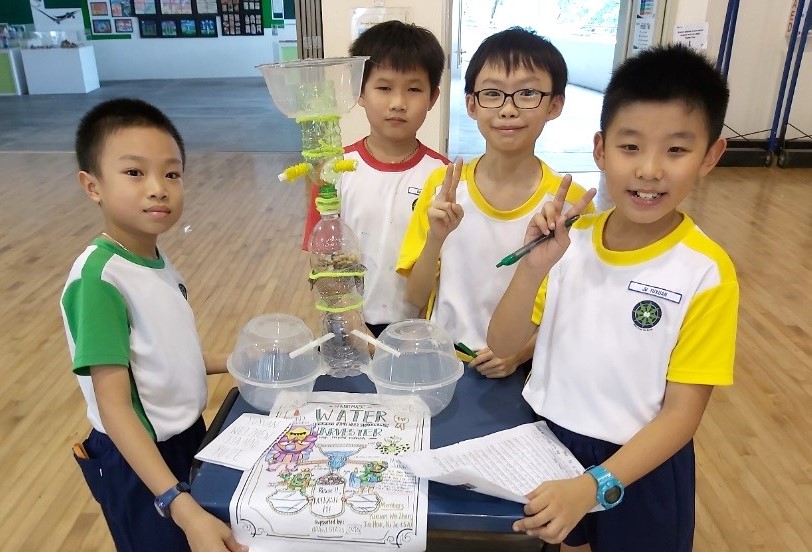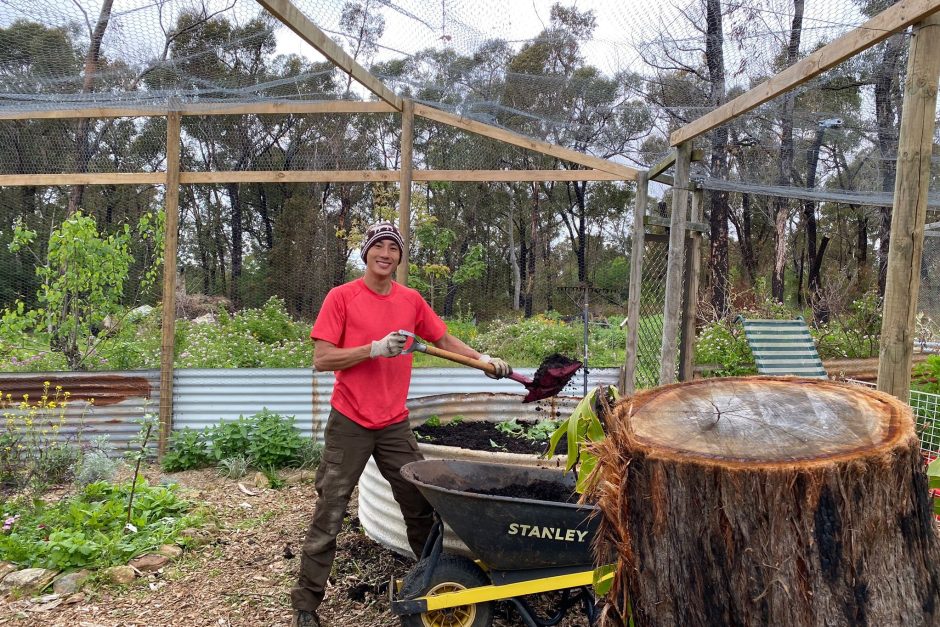In Dazhong Primary, environmental sustainability is more than just an Applied Learning Programme (ALP). Respecting nature and conserving the Earth’s limited resources are themes that appear in all subjects, and students come up with their own solutions to environmental problems both in and out of the classroom.
We speak to Mr Caleb Leong, Head of Department for Science, who also oversees Dazhong Primary’s Green Makers ALP programme to find out how this is achieved.
Who are the Green Makers?
We know that climate change is going to be one of the main challenges of our generation, and it is important to equip children with STEM (Science, Technology, Engineering, Mathematics) skills and knowledge to tackle it. That’s why our ALP combines the theme of sustainability with the Maker approach, for all students to not just be aware of the environmental challenges in Singapore, but also to take action by coming up with green solutions and advocating for others to do likewise.
Thus, Green Makers was envisioned. With the 3As (Awareness, Action and Advocacy), we hope to empower our students to live out our school values.
 Students bring recycled materials for their ALP projects – because they walk the talk when it comes to sustainability! (Photo was taken before COVID-19)
Students bring recycled materials for their ALP projects – because they walk the talk when it comes to sustainability! (Photo was taken before COVID-19)
So, what are the students actually making?
They make many things that are connected to the theme of sustainability. For example, our Primary 5 students were tasked to design a rainwater harvester while keeping in mind the constraints Singapore faces, such as limited land space. This was after they learnt about climate change and the threat it presents to our water supply, so they understand the need and the context for the project. Students are given the opportunity to exercise their natural curiosity to find out more, then apply their knowledge, by creating solutions with the principles of Design Thinking based on the 4Ds of Discover, Define, Develop and Deliver.
Students interested in technology are introduced to basic programming using micro:bit and given the opportunity to join competitions to test their creativity. One team built a waste-sorter that used a light sensor to detect whether an object is made of recyclable material. If the item is recyclable, a rotating flap is activated, and the object falls into the recycling bin. Another group found a way to repurpose orange peel to make refillable air fresheners for the school toilets. I’d say our students’ imagination is boundless!
With the Covid-19 situation, we’ve also pivoted to Blended Learning for our ALP. For example, our teachers conducted some of ALP sessions over Zoom and the Student Learning Space (SLS), where students were provided with take-home kits of solar-powered fans and recycled cardboard, to create an energy-saving model classroom. Even when lessons go online, our students don’t miss out on the chance to build and present their prototypes to their classmates.

How have students responded to this approach?
I think children always enjoy being hands-on and they appreciate the freedom to create. One way we can see their enthusiasm is during our annual ‘Dare Challenge’, where students create green solutions and film a TED Talks-style video to share their ideas with their classmates. This is not a compulsory project, but more than 80% of P1 to 5 students took on the challenge and came up with amazing creations out of recycled materials, such as a candle-powered boat, a self-watering plant pot and a fully-operational claw machine! It’s safe to say our students are proud to be Green Makers. In our most recent run of the ALP, 99% of students responded that they feel they can contribute to the challenge of Sustainability in Singapore!
Is it all about technology? What about the “Green” aspect, such as nature and wildlife?
We do engage students on green issues too. It helps that our school has two ecosystem ponds and a Sky Garden, where we can teach them to appreciate nature and biodiversity. As part of our Science extended curriculum, some teachers bring the students into the garden for lessons and draw links to what they are learning in English or Science class.
Another part of our ALP that students enjoy is when they get to grow their own food. Our school has an indoor aeroponics system, and we encourage classes to adopt seedlings and track the growth of the vegetables – which is linked to their Science lessons too. Students are also guided in making their own hydroponics system; many were very happy to gift the produce to the school cleaners to thank them for the work they do. We have our own pet earthworms in school too, who help to process food waste from the canteen. Through these projects, students learn about the Singapore Green Plan and Singapore’s goals in food sustainability.

Sustainability is quite a popular topic in schools today. What do you think makes Green Makers @ Dazhong unique?
I think Green Makers has really gone beyond ALP lessons, such that environmental sustainability is part of our school culture. Teachers taking subjects that are not traditionally related to the environment, such as Math, have also found ways to incorporate these themes into their lessons. For example, they got students to track the mass of rubbish in the class bins and plot it in different types of graphs, so they are aware of how much they throw away. For Education and Career Guidance too, we invited speakers from the field of green technology, such as an NEA entomologist involved in the Wolbachia project for anti-dengue efforts to share his experience. The aim is to show students how sustainability offers viable career options too. You can say this is a whole-school effort!
Our ALP has also led to valuable partnerships with parents and the community.
Parent volunteers and even citizen-gardeners from the neighbourhood join our school’s Scouts troupe to maintain and spruce up our gardens (where COVID measures allow). We also have a group of dads who bring their families on a Saturday clean-up around the neighbourhood, and role-model how we can all do a part for the environment outside of school.
I think these connections to their everyday life, and the larger community are what makes our ALP special!





-(940x705).jpg)

